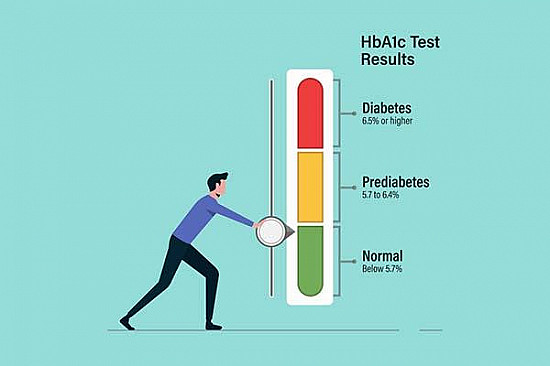Can an online game really improve blood sugar control for people with diabetes?

Follow me on Twitter @RobShmerling
When it comes to serious health problems, you might think a game would be unlikely to help. But a recent study of people with diabetes could change your mind.
Researchers publishing in the September 2017 issue of Diabetes Care describe a study in which people with diabetes joined a competitive online game aimed at educating participants about ways to improve blood sugar control. The results were encouraging.
How a game led to improved blood sugars
In this new research, 456 patients with poorly controlled diabetes were randomly assigned to one of two groups:
- Group 1 participated in an online or phone-based educational game that asked two questions about managing diabetes each week for six months. Later, answers and explanations were provided. This group also received a booklet about civics, including questions about citizenship in the US.*
- Group 2 received online or phone-based questions about civics each week for six months along with a booklet about diabetes self-management.*
(*The researchers wanted to have a control group that was just like the diabetes management game group, except instead of diabetes information they provided information on civics. Both groups got a civics lesson and diabetes information; the only difference was how that information was delivered. That way investigators could say with more confidence it was the game that improved blood sugars.)
Each participant was assigned to a team. Points were awarded for correct answers, and scores were posted so other participants could compare team and individual performance (with use of aliases to protect patient confidentiality). Members of the winning teams were rewarded with $100 gift certificates. In addition, the individuals whose scores were in the top 30% also received a $100 gift certificate.
At the end of the six-month competition, blood sugar control for those in Group 1 was better than for those in Group 2. The improvement was even greater 12 months after the game began. In fact, the improvement observed in Group 1 patients with the worst blood sugar control was similar to that found in studies of diabetes patients starting a new medication to lower blood sugar.
Why is this important?
Keeping blood sugar close to normal is an essential part of diabetes care because it can prevent serious complications such as nerve damage, vision loss, and kidney failure. While a number of medications (including oral drugs and insulin injections) are available to lower blood sugar, non-medication options, including loss of excess weight and changes in diet, can be highly effective, cause fewer side effects than medications, and may come with health benefits beyond blood sugar control.
Although previous studies had been inconclusive, this new research strongly suggests that participation in an online game can lead to meaningful improvement in blood sugar control among people with diabetes.
Interpret with caution
Despite the encouraging findings of this study, it's important to recognize some of its limitations, including:
- Nearly all of the participants were male; results could be different if more women were included.
- In order to enroll, all study subjects had to have access to the internet and email, so the results may not apply to those less proficient with these technologies.
- The 456 people with diabetes who completed the study represented less than 3% of those considered potentially eligible to enroll. Therefore, the response of this group to the online game may not reflect the general population of people with diabetes.
- It's not clear whether the improvement in blood sugar following the six-month competition would continue beyond 12 months.
- It's uncertain whether the online game would have been as successful without the monetary prizes. In the "real world" such incentives are not generally available.
What's next?
I think we are at the very beginning of realizing the potential of online and phone-based technologies to improve health. Diabetes is only one of many chronic diseases that could be better treated with patient engagement, motivation, and self-management. It no longer seems far-fetched to believe that innovative application of these technologies will prove beneficial to health, quality of life, and even longevity.
Disclaimer:
As a service to our readers, Harvard Health Publishing provides access to our library of archived content. Please note the date of last review or update on all articles.
No content on this site, regardless of date, should ever be used as a substitute for direct medical advice from your doctor or other qualified clinician.















